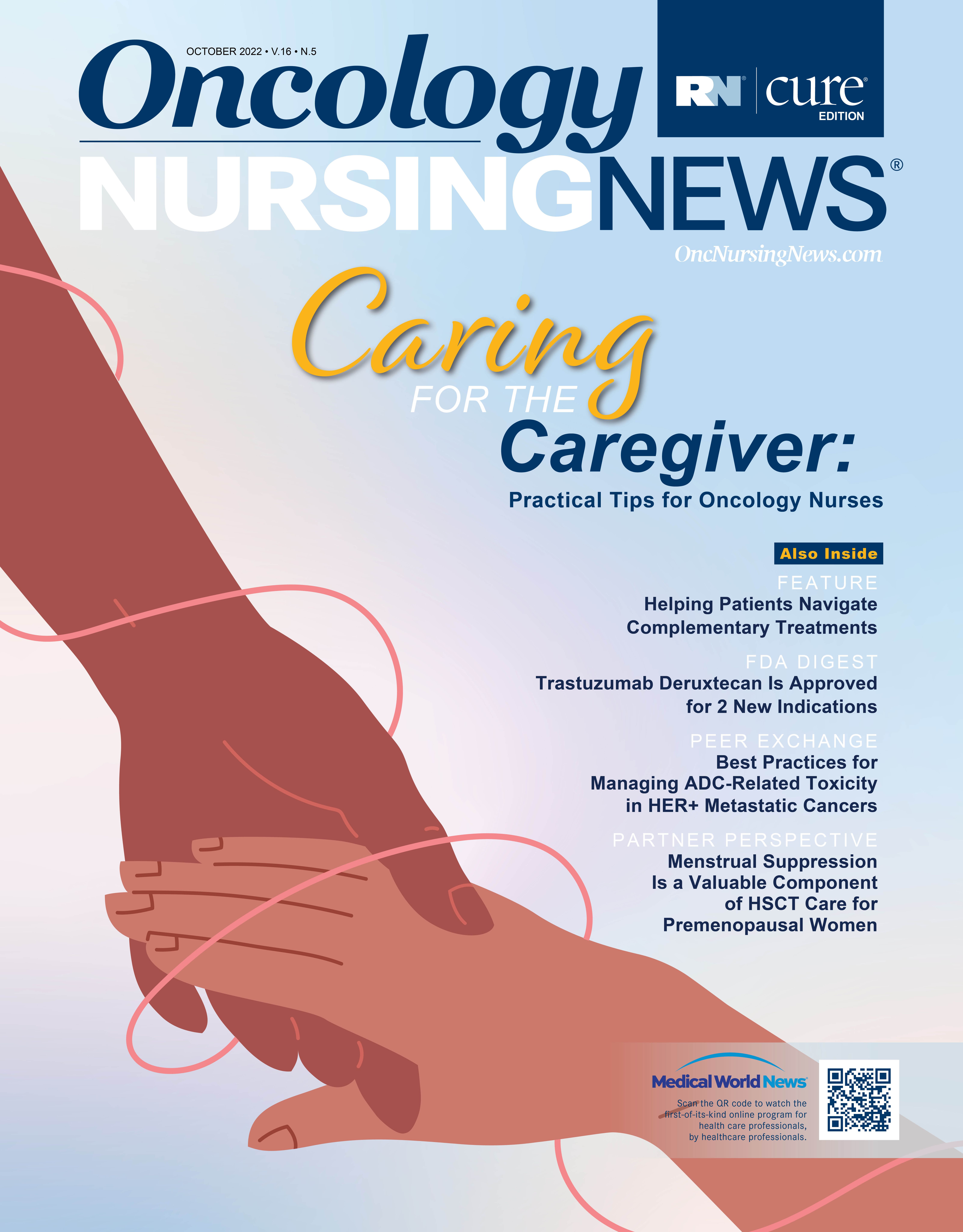Advanced Practice Providers Are Uniquely Suited for Survivorship Care
Advanced practice providers are the future of survivorship care because of the tremendous value they offer to the practice and its patients.
Jason Astrin, DMSc, MBA, PA-C, DFAAPA

Over the past few decades, the number of advanced practice providers (APPs) in oncology has increased dramatically and the role they play expanded greatly. One reason for this is that there are more patients who need oncologists in the US than there are physicians practicing the specialty. According to the American Society of Clinical Oncology, the nation will see a shortage of more than 2200 oncologists by 2025 and an increase of 40% in demand for cancer treatment during the next 6 years.1 This growth in demand is driven not only by new patients, but by those who have completed active treatment and require follow-up care. Thanks to advanced therapies, better outcomes are being achieved and survival rates are improving. Cancer survivors—even with complex comorbidities—are living longer than ever before.
Survivorship care can readily be performed by APPs, given their wide breadth of expertise and training. A closer look at how these highly skilled professionals deliver survivorship care will provide some insight into why they areideally suited to lead these programs, meeting a critical need that will only grow in the future.
Uniquely Qualified
In many practices, APPs are the backbone of survivorship programs, playing a key role in their planning and execution. They are well suited to lead these programs because of their extensive education, training, and scope of practice.
They also develop strong relationships with patients and caregivers during active treatment. As trusted members of the care team, it makes sense for them to discuss the key elements of survivorship with patients, some of which—like lifestyle changes and advance care planning—can be difficult to talk about.
Survivorship: Start Early, Stay Late
Many patients are under the misconception that survivorship doesn’t begin until they have finished active treatment. According to the National Cancer Institute, however, a patient is considered to be a survivor from the time of diagnosis until the end of life.2 APPs can help patients understand that survivorship encompasses everything from diagnosis onward—be they undergoing treatment, in remission, or facing recurrence.
A Critical Role at All Stages of Survivorship
APPs make valuable contributions at all stages of the survivorship journey.
During active treatment
They manage patients during active treatment, helping them keep side effects under control so that they can adhere to treatment. They educate patients about what to look for so that side effects can be caught early and dealt with more easily. They support the psychological well-being of patients by addressing their expectations and fears. They talk with patients early on about the emotional impact of the diagnosis, teach them stress-coping skills, and refer them to mental health professionals if and when necessary.
During posttreatment follow-up
Once active treatment ends, the focus shifts to long-term surveillance. Patients may not be cured but they may be in remission, so ongoing follow-up care is critical, from a clinical and psychological standpoint.
By this stage, a long-term care plan has been developed that spells out exactly what treatment has been given and what follow-up care is needed and when. It details intervals between office visits and the imaging, lab tests, and other surveillance that may be needed. It also includes information that helps patients and their care team recognize signs of recurrence, the emergence of a secondary cancer, and potential long-term side effects like cardiotoxicity.
The transition away from active treatment is always stressful for patients because they must adjust to many changes, including less frequent office visits, which may make them feel as if they lack support. APPs play an important role at this stage, as by now they have a good relationship with patients and their caregivers. They can thus communicate effectively about such sensitive topics as patient emotions, lifestyle changes, and advance care planning. APPs are able to recognize signs of distress during this transition and provide appropriate assistance, whether that be by getting patients into support groups, referring them to mental health professionals, or prescribing medication.
Once active treatment concludes, patients may transition to receiving most of their care from a primary care physician. A detailed survivorship plan makes the PCP intimately familiar with a patient’s condition and needs. And APPs are always available to offer advice about mutual patients.
Overcoming Survivorship Challenges
There is always a concern that the patient may not adhere to a survivorship plan. Because they interact less frequently with the oncology care team, they may lose motivation. APPs must make sure patients understand not only the plan but the need for them to become more responsible for their own health.
This is also a time when APPs are very vigilant about checking for anxiety and depression so that they can catch the conditions before they get out of control. Primary care providers can also be brought into the discussion and intervene if need be.
Conclusion
A survivorship plan is key to providing high-quality, patient-centered care. It must be developed early on to ensure the best patient experience and quality of life. APPs are ideally situated to manage or lead cancer survivorship because of the close relationship they establish with patients and their caregivers. Practices also benefit from such work because it allows physicians to focus on other priorities. Integrating APPs into survivorship care is a trend that will only grow in the future owing to the tremendous benefits it offers to the practice and its patients.
References
- Finnegan J. Another physician shortage: oncologists.Fierce Healthcare. Oct 30, 2019. Accessed July 13, 2022. https://www.fiercehealthcare.com/practices/another-physician-shortage-oncologists
- Survivor. NCI Dictionary of Cancer Terms. National Cancer Institute. Accessed July 13, 2022. https://www.cancer.gov/publications/dictionaries/cancer-terms/def/survivor

Shared Model of Care Post-HCT Offers Safe Follow-Up, Reduces Patient Burden
Published: March 19th 2025 | Updated: March 19th 2025Alternating post-HCT care between specialized facilities and local cancer centers produced noninferior non-relapse mortality and similar quality of life to usual care.



